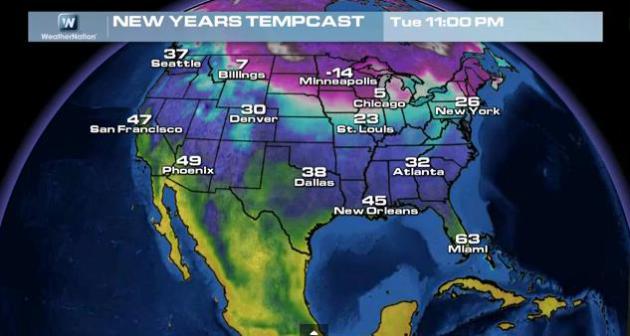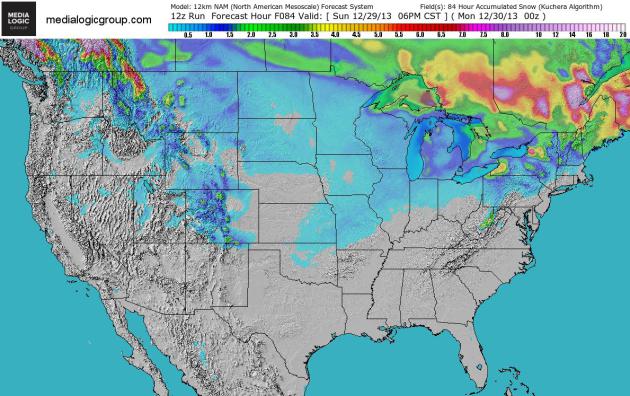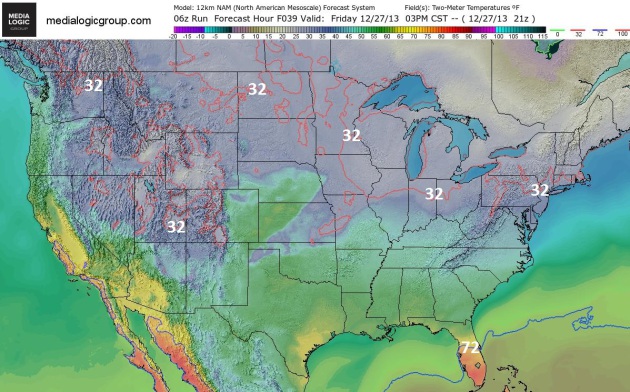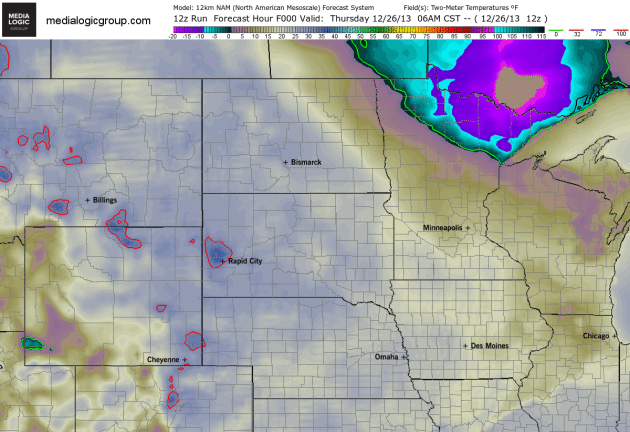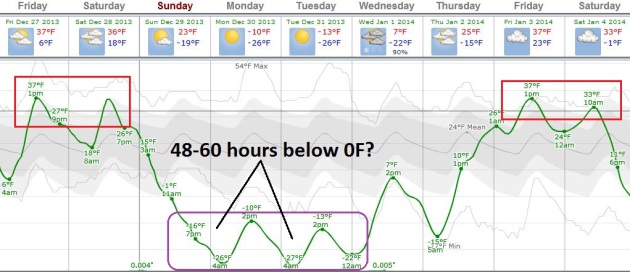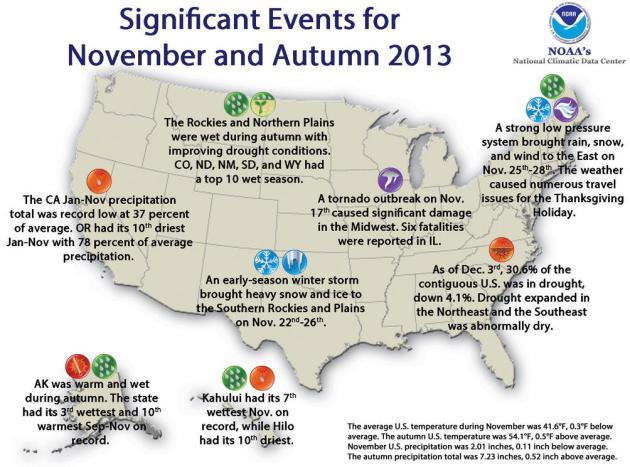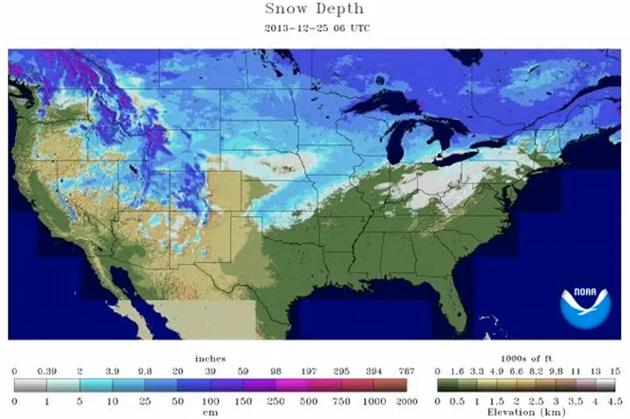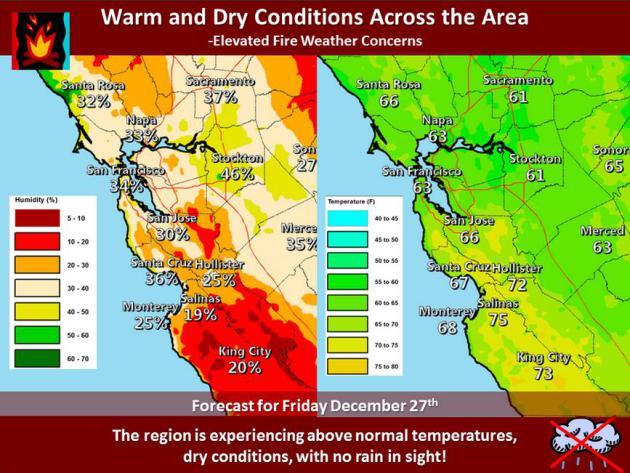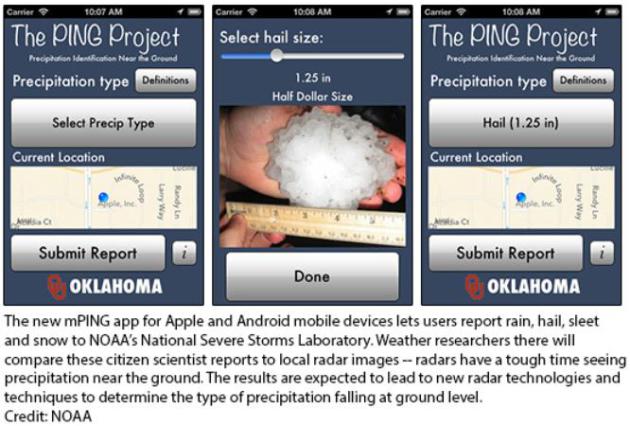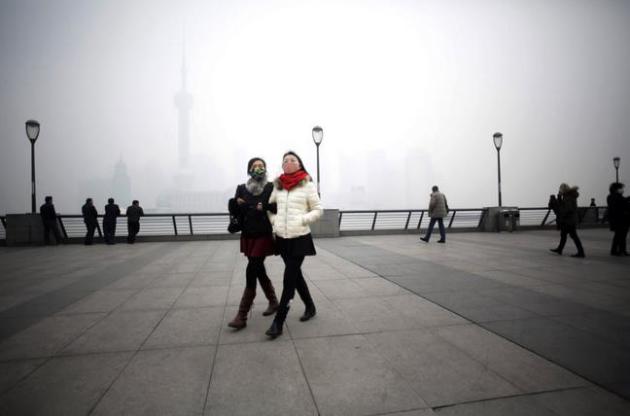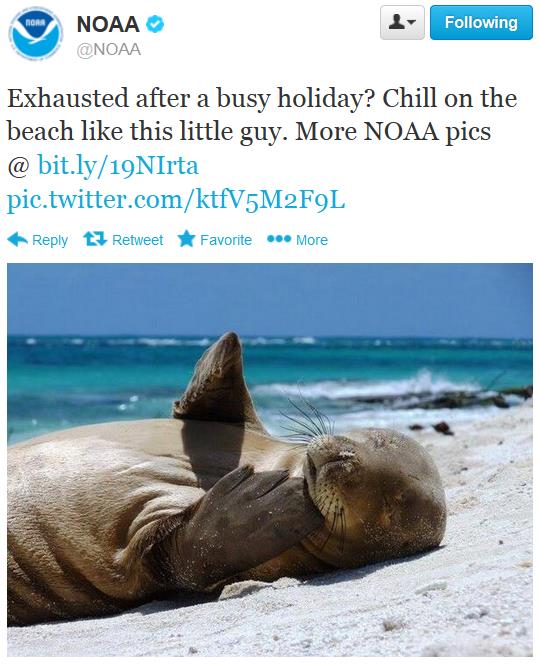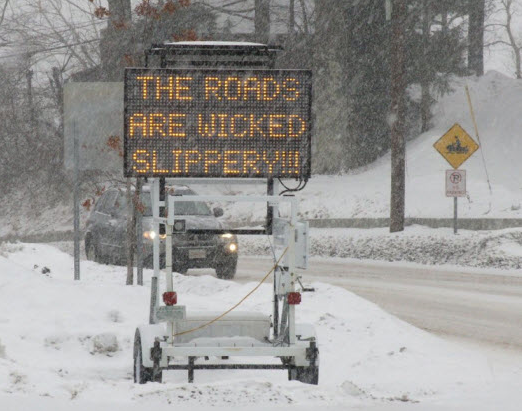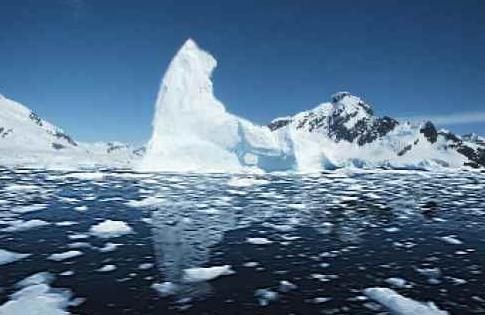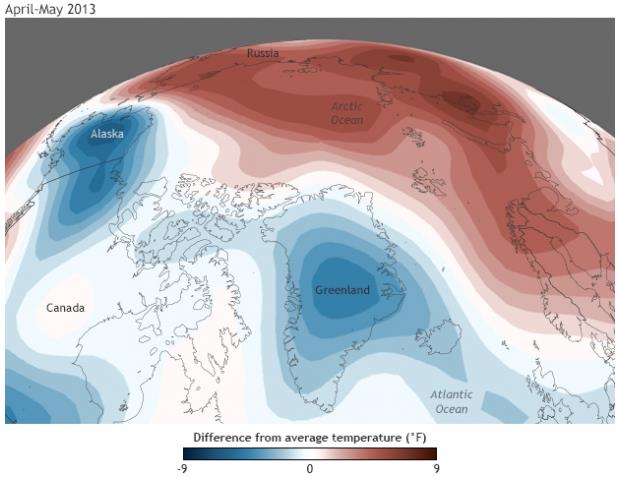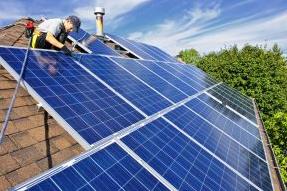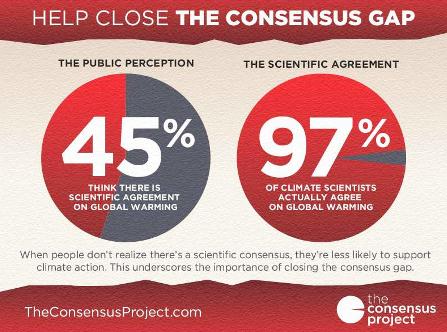An Improbable Year
On
today's weather blog (below) I have a list of the most unusual and
improbable Minnesota weather stories of 2013, courtesy of Pete Boulay,
at the Minnesota Climatology Working Group. A few of the events that
made me do a double-take: an historic snowstorm from May 1-3, an icy
Fishing Opener up north, a damaging "wall of ice" whipped up by high
winds, a rare August frost over the Arrowhead, followed by the 3rd
warmest state fair on record, and only 15 tornadoes statewide. There
were no tornadoes in the metro area, but the June 21 "Solstice Storm"
whipped up damaging straight-line winds, dropping thousands of trees,
sparking widespread power outages.
An odd year, but then again Minnesota's weather is rarely average.
I
don't see any big storms brewing close to home between now and the end
of next week - good news for New Year's travel plans. If you're heading
east expect a soaking rain event Sunday, followed by subzero readings
over New England next week as the same brutal airmass pushes east.
Expect
a Eureka Moment today & Friday as temperatures soar into the
mid-30s(!) followed by a massive Arctic Hangover Sunday, as readings
plummet into single digits. Highs struggle to reach zero Monday &
Tuesday, but another thaw is brewing for the end of next week.
Hey, the days are getting longer now. Can spring be far behind?
You 'betcha!
Image credits: Upper left: Lake Mille Lacs, May 11, 2013, courtesy of
StormChasingVideo.com. Upper Right: "
A tree split during the storm and fell at 47th and Oakland in south Minneapolis early Friday, June 21, 2013". Rachel Blount, Star Tribune.
New Year's Eve Preview. In today's edition of
Climate Matters
we track violent storms slamming into the British Isles, record warmth
for southern California, air stagnation in the Bay area (where the dry,
sunny rut continues) and glaze ice headaches for much of Lower Michigan
in the wake of last weekend's "Solstice Storm". Soaking rains are likely
along the eastern seaboard by Sunday, followed by one of the coldest
outbreaks of winter for the northern third of the USA next week.
Snowy Headaches Diminish.
The 84-hour NAM model from NOAA shows a plowable snowfall downwind of
Lakes Erie and Ontario, with heavy snow for northern New England and
upstate Maine; otherwise the map shows a lack of major snowfall into the
weekend. Map: Ham Weather.
3 PM Friday.
Old Man Winter is (temporarily) tiring of flinging subzero airmasses
south of the Canadian border. A brief respite is likely into Saturday
across the northern tier of the USA; 3 pm temperatures showing readings
above freezing south of a line from Hartford to Wilkes Barre, South
Bend, the Twi Cities and Bismarck. Map: NOAA and Ham Weather.
A Fleeting Temperature Break - Then Arctic Reality Sets In.
Enjoy the next 36 hours, with PM temperatures flirting with freezing
over parts of central and southern Minnesota, because (all) guidance
shows subzero air hurtling southward again Saturday night into Sunday.
NOAA 2-meter temperature guidance: Ham Weather.
Crazy Temperature Swings.
After enjoying a thaw Friday and again Saturday temperatures drop as
much as 40-45 degrees Sunday into Monday morning. Highs may struggle to
reach 0F in the Twin Cites Monday and Tuesday, with as much as 48-60
hours of subzero weather the first half of next week. Any pain will give
way to another thaw by the end of next week, based on ECMWF model
guidance. Graphic: Weatherspark.
Top weather events for Minnesota for 2013
(in chronological order). Thanks to Pete Boulay at the Minnesota
Climatology Working Group for sharing these. For a list of 2012's Top
Five Weather Events
click here.
A. Record January Precipitable Water in the Twin Cities
http://www.crh.noaa.gov/news/display_cmsstory.php?wfo=mpx&storyid=91567&source=0
B. Southwest Minnesota Ice Storm of April 9-10 http://www.climate.umn.edu/doc/journal/winter_storm_april_9_2013.htm
C. Snowy April in Duluth
http://www.crh.noaa.gov/news/display_cmsstory.php?wfo=dlh&storyid=93989&source=2
D. Historic May Snowstorm May 1-3, 2013
http://www.climate.umn.edu/doc/journal/snow_2013_05_02.htm
E. May 14th Heat Wave
http://www.climate.umn.edu/doc/journal/hot_140513.htm
F. Cold Spring/Late Ice out 2013
http://www.dnr.state.mn.us/ice_out/index.html?year=2013
G. High Wind and Heavy Rain Event of June 21, 2013 http://www.climate.umn.edu/doc/journal/severe130621_22.htm
H. July 18-19 2013 Heavy Rain and Washout on the North Shore http://www.climate.umn.edu/doc/journal/07182013_storm.htm
I. National Night Out Storm of August 6
http://www.climate.umn.edu/doc/journal/08062013_storm.htm
J. 3rd Warmest State Fair on record
http://www.climate.umn.edu/doc/journal/state_fair_weather_2013.htm
K. Lack of Tornadoes in 2013 for Minnesota (only 15, the lowest since 1990) also very low in US
http://www.spc.noaa.gov/wcm/torgraph-big.png
Climate Highlights - November. Here's an excerpt of a look back at November (and all of autumn) across the USA from
NOAA: "
- The November temperature was 41.6°F, 0.3°F below the 20th century average, ranking near the median value in the 119-year period of record.
- Below-average temperatures were present for a majority of the contiguous U.S. east of the Rockies. Above-average temperatures
were present for the Southwest, as well as Florida. No state had
November temperatures ranking among the ten warmest or coolest.
- The nationally-averaged precipitation total during November was 2.01 inches, 0.11 inch below the 20th century average, also ranking near the median value in the 119-year period of record.
86 Days Of U.S. Snowcover In One Minute. Check out the changes since October 1 across America, courtesy of NOAA and
Rebel Mouse.
Elevated Fire Risk Bay Area.
While polar air invades the Upper Midwest and Great Lakes, spinning up a
parade of East Coast storms in the coming days, the West Coast remains
unusually quiet, sunny, mild and very dry. California is experiencing
the driest year in state history - it's unusual to be tracking wildfires
in late December (when storms should be sweeping in off the Pacific).
Graphic: National Weather Service.
Do You Have NOAA's mPING App?
The more (reliable) data, the better, including storm reports. That's
the concept behind NSSL's (National Severe Storm Lab's (free) mPING app.
More details here.
Shanghail Warns Children To Stay Indoors On Haze, PM2.5 Surge. The air quality doesn't seem to be improving much across northern China. Here's an excerpt of an story at
Bloomberg: "
Shanghai
warned children and the elderly to stay indoors as smog enveloped
China’s commercial hub, sending levels of the worst pollutants surging
to more than 15 times World Health Organization
guidelines. The level of PM2.5 pollutants reached 395.7 micrograms per
cubic meter at 3 p.m., the city’s environmental monitoring center said.
The WHO recommends exposure of no more than 25 over a 24-hour period
for particles smaller than 2.5 microns in diameter that are more
dangerous than other particulate matter..."
Photo credit above: "
Tourists
wear protective masks while walking at the Bund under heavy haze in
Shanghail, China, Thursday, Dec. 26, 2013. Shanghai warned children, the
elderly and people suffering from heart or lung disease to stay indoors
as smog engulfed the city." (AP Photo/Eugene Hoshiko).
Bimby: Your Own Personal Robotic Kitchen Helper.
Not sure if this amazing kitchen contraption is coming to the USA
anytime soon, but check out the video, and what Europeans are willing to
spend to make their lives a little simpler, courtesy of
The Wall Street Journal:
"...
Bimby, a German-made cooking robot, has become an obsession in
Western Europe's poorest country by promising to make cooking cheap and
easy. Bimby looks like a food processor with a stainless-steel container
and a steaming unit that weighs ingredients, chops, grates, blends,
beats, mixes and cooks, all under the control of a timer that lets the
cook step away from the kitchen until the food is ready...."
Australia: Sharks Use Twitter To Warn Swimmers. This may be the most innovative (and unnerving) use of Twitter I've seen yet; here's an excerpt and video clip from
Sky News: "...
Scientists
have attached transmitters to more than 320 sharks, including great
whites, which monitor their movements up and down the coast. When a
tagged shark swims within about a kilometre of a beach, it triggers an
alert which is picked up by computer. That computer then instantly turns
the shark's signal into a short message on Surf Life Saving Western Australia's (SLSWA) Twitter feed..."
Climate Stories...
Global Warming Is Rapidly Accelerating.
OpEdNews.com has the story; here's an excerpt: "...
A
briefing provided to the failed U.N. Conference of the Parties in
Copenhagen in 2009 provided this summary: "The long-term sea level that
corresponds to current CO2 concentration is about 23 meters above
today's levels, and the temperatures will be 6 degrees C or more higher.
These estimates are based on real long-term climate records, not on
models." Ocean physicist Peter Wadhams of Cambridge University was
one of the sources quoted by Jamail, and he says, "The fall-off in ice
volume is so fast it is going to bring us to zero very quickly." That's
how soon (within less than ten years; he estimates probably less than
five years) what had only recently been the 90% reflection of the
arctic's sunlight out into space will become instead the 90% absorption
of that solar energy. Oil companies no longer deny what is happening;
they are exploring in the arctic, where snow-covered ice, until
recently, used to be. As Julian Cox headlined on 2 June 2013, "Exxon Mobil CEO: We're Going In, Can't Pull Up, Brace For Impact." Cox's ultimate sources in that news story were the AP and the Houston Chronicle ..."
2013 Arctic Report Card: Arctic Had Sixth Warmest Year On Record In 2012. Here's an excerpt of an update from NOAA's
Climate.gov: "
According
to a new report released today by NOAA and its partners, cooler
temperatures in the summer of 2013 across the central Arctic Ocean,
Greenland and northern Canada moderated the record sea ice loss and
extensive melting that the surface of the Greenland ice sheet
experienced last year. Yet there continued to be regional extremes,
including record low May snow cover in Eurasia and record high summer
temperatures in Alaska. “The Arctic caught a bit of a break in 2013 from
the recent string of record-breaking warmth and ice melt of the last
decade,” said David M. Kennedy, NOAA’s deputy under secretary for
operations, during a press briefing today at the American Geophysical
Union annual meeting in San Francisco. “But the relatively cool year in
some parts of the Arctic does little to offset the long-term trend of
the last 30 years: the Arctic is warming rapidly, becoming greener and
experiencing a variety of changes, affecting people, the physical
environment, and marine and land ecosystems...”
Graphic credit above: "
Temperature anomalies for April-May 2013 compared to the 1981-2010 average." Map by NOAA Climate.gov, based on NCEP Reanalysis data from NOAA ESRL Physical Sciences Division.
Reframing Climate Change: A Public Health-Based Climate Change Framework.
Somewhere between alarmism and outright denial, can Americans agree on
an approach that focuses on our health? Here's an excerpt from
The National Law Review: "...
All
segments shared the belief that good health is a great blessing.
Reframing climate change does not suggest the new framework will
immediately engage all members of society. However, a human health
framework localizes the issue. It takes it from the abstract and helps
people make connections to the issues they already know. This new
framework allows people to connect climate change with “already familiar
problems such as asthma, allergies, and infectious disease experiences
in their communities, while shifting the visualization of the issue away
from remote arctic regions, and distant peoples and animals.
Essentially, public health brings climate change out from the wild, and
into the home..."
Climate Change Fuels Water Scarcity And Hunger. Here's a clip from the German publication,
Deutsche Welle: "...
As
the growing world population's consumption of water increases, fresh
water resources are also becoming scarcer due to climate change. Water
sources are melting and drying out. Scientists at the Potsdam Institute for Climate Impact Research (PIK)
have calculated how much of the essential resource the world risks
losing to the effects of climate change. To get a clearer picture of
such effects, the researchers collected data from five global climate
models and 11 global hydrologic models. Their study aims at finding new
ways to counter looming water scarcity..."
Photo credit above: "
Dr.
Alexis Felder, Founder of The Joseph Assignment Global Initiative gives
a child in Ghana, Africa her first cup of clean drinking water." (PRNewsFoto/Joseph Assignment Global Initiative)
Utilities Feeling Rooftop Solar Heat Start Fighting Back. Here's a clip from a story at
Bloomberg: "...
Everyone
is on board with getting solar and HECO has now put up a wall,” Walker
said. “The only thing we can see is profit motivation.” Spurred by a
drop in panel prices,
robust government subsidies and a technology that no longer appears
experimental to mainstream America, rooftop photovoltaic solar is
bursting out everywhere. About 200,000 U.S. homes and businesses added
rooftop solar in the past two years alone – about 3 gigawatts of power
and enough to replace four or five conventionally-sized coal plants. The
U.S. set a single-quarter record with 31,000 residential rooftop
installations in the three months through Sept. 30. Solar represented 72
percent of all power added in the U.S. in October..."
Photo credit above: clickgreen.org.
Republicans In Congress Got The Testimony They Wanted To Keep Playing Climate Russian Roulette.
The Guardian has the story - here's an excerpt: "...
Titley
is right that whether we like it or not, climate change is a risk
management problem. Those who favor inaction are putting all their chips
on the best case scenario, hoping that the most likely and worst case
scenarios don't come to fruition. It's akin to driving around in a
turbo-charged sports car without purchasing auto or health insurance
because one mechanic and one doctor out of 30 said you'll probably be
fine. It's quite simply a massive risk management failure.
With something as important as the global climate, on which every
living being on the planet relies, we should be overly cautious, not
impetuous and reckless..."

